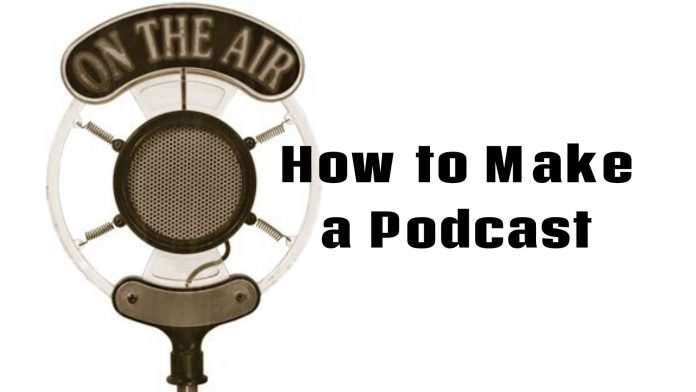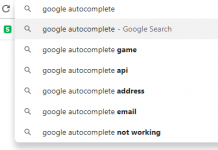Podcasts are a fun way to get your content out there, whether it’s discussing an important topic, doing an actual play of a game or chatting with friends over your favorite Sailor Senshi. You might have an idea that might be fun or worthwhile. But then the big question is “How do you make a podcast?”
1. Planning the format of your podcast
So what are things to consider when creating your podcast?
a. What’s your topic?
This seems like a no brainer, but when it comes to finding podcasts, there are established categories that will make podcasts easier for an audience to find. Whether it’s a roleplaying podcast, a home improvement podcast or a political discourse podcast, think of the labels or focuses for your production. And of course, a nice title to inspire you.
b. How often do you plan to record?
One of the reasons why podcasts stumble after launching is because they don’t plan how often they are going to record. It also needs to be realistic: You can do a podcast every day if you want to dedicate that kind of time and commitment. But you can do a podcast once a week, biweekly or even once a month. It’s important to have a consist recording and launch schedule for your audience; they’ll be fine if you decide to record every two weeks, but if you skip a month, they assume that your podcast is stopped happening unless you communicate otherwise.
c. How long is your podcast going to be?
Podcasts range from 10 minutes to 3 hours depending on the topic. You also have to think about it from the listener’s perspective as well: Is this a topic that you can discuss for 30 minutes or is it a group chat that lasts an hour?
2. Find a podcast hosting site.
You will need a site that will house all of your audio recordings so people can access them on the internet.
I use Podbean but there are other podcast sites such as Libsyn, Blubrry,
You may want to consider what outlets would be like your podcast to be on and how people are going to listen to your content. It would be easier (and more prestigious) if you can say that people can listen to your podcast on iTunes, Spotify or iHeartRadio. Some of these hosting sites make it a point to let you know who their distribution outlets are so that helps with the guesswork. Ultimately, you want to make sure that people can find you, regardless of where you post your podcast.
Sites can charge by the amount of server space or length of time that is recorded monthly. In most cases, you can always upgrade your hosting site plan if you feel you need more space.
3. Recording equipment
Many people think that you have to have top-level recording equipment to do a podcast. It’s more important that you have some way to record so you aren’t hampered with thinking that you can ONLY make a podcast after investing into audio equipment that you’re not sure that you need yet.
Surprisingly these days, I do most of my recording with an audio recording app on my own iPhone (I use Voice Record Pro by Dayana Networks). If the room is quiet, I put my phone in the center of the table and start my podcast that way and it works just fine and because it’s my phone, it’s super portable.
In my other setups, I’ve used a Blue snowball Ice microphone and attached it to my laptop straight into my audio recording/editing program. I also have a higher-end recording device, my Zoom H4n, that I’ve recorded onto an SD card, but I’ve found that’s way more than I needed.
As long as the voices are clear by making sure your guests speak in the direction of the microphone, you’ll be fine. If you record more sessions of your podcast, you’ll start learning what works for you and adjust your mics, positions, and editing program and even show format, but for the now, the big lesson is to not get very hung up on not having the best recording equipment; just have something that works.
OR ask a friend who’s already doing a podcast and ask what works for them.
4. The Actual recording
Once you sit down to record, you can choose to record live or go back and edit the recording. This is an editorial decision if you want to “let things happen” in your recording or if you want to “edit the podcast to clean things up.” Either choice is fine, but I choose to edit my recordings in the case any of my guests or hosts need something edited out or to avoid rambling or my producer notes while recording.
While many people are fine to start the recording and “whatever happens, happens” (chimichanga superstar). I usually go over with my cohosts and my guests the outline for the session so they know what to expect, including the intro, any segments introduced in the show and anything they want to talk about on the podcast or promote.
5. Sound check!
This is incredibly important before doing an actual recording because you want to make sure that the voices can be heard in the recording so that your audience isn’t straining to listen to them speak.
If you have mics individually set up with a mixer, you can adjust the levels of each mic then. But if you have a central spot for your recording, you can figure by recording a few times if you need to adjust the position of the recorder. It’s important that your guests speak in the direction of the mic. Also, pay attention to those speaking, some people will be super attentive when they do a sound check but forget the mic is there during the recording.
Try to keep the place clear of extraneous noise because you can’t edit that out too much. And little things like dangling jewelry, snacking on chips or the click-clack of typing on keys to take notes might make their way into your record, making it difficult for your listeners to pay attention or to edit.
6. Edit and launch
While this is not true of everyone, but I always assume that editing a podcast will take me at least two times as long as a recording, because not only are you listening to the entire recording, but you have the option to edit out long dead air where people aren’t saying anything, parts that are rambling or redundant, random distracting noises, or production notes that I edit out.
It will be super helpful if you have an audio editing system that can display soundwaves so you aren’t repeatedly having to play the same portion of the track repeatedly and guessing where to cut or edit. Many think all programs automatically have this; you would be surprised. Two of the most used are Audacity and GarageBand but there are many others.
As for the launch, the most important thing about making your podcast grow is a consistent launch schedule. Yes, this mentioned at the beginning of this article, but I cannot stress this enough how important this is. If your audience likes what you do, they want to turn in regularly. But if there is no regular schedule, then it’s more weight on you to remind everyone when a new podcast comes out. Also without consistent posts, it’s not difficult for people to assume to assume that you’ve stopped and they will turn their attention elsewhere.
7. Promote
Now that you’ve made a podcast (congratulations, by the way), how do you let people know?
First of all, obviously tell your family, your friends and anyone else on social media. Now is not the time to be incredibly shy; you want people to listen and if possible, give feedback. Even if you ask ten people and only one listens, that’s still one listener. And if you make your content compelling, that listener will tell others.
If you have a guest or two, they will naturally want to promote their own appearance on your podcast so that helps spread the existence of your content, possibly giving you a few more listeners that are outside the immediate circle of your own friend groups.
Share your content with a few interest groups that are relevant to your podcast; there are some people who might want something to listen to on their commutes to work or on a treadmill. Just be respectful of the community’s posting rules; don’t spam groups just to promote, otherwise, you’ll get a bad rep before people listen.
And celebrate milestones. Got 100 downloads? Get excited. Got 50 listeners? Thank those people. Joined a new distribution channel to enable more exposure for your podcast? Let people know! People who may not have been your first listeners will see your progress and might eventually give your podcast a try.
Looking for more content? If you are looking to run your own Dungeons & Dragons game, find out what LARP is, or seeing what games are fun to play on your mobile phone, there’s more content here on Critical Shots.








